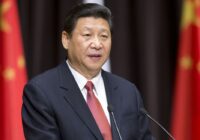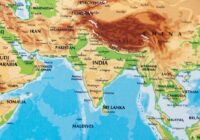Only an honest conversation about inequality, education, and liberty will restore the American Dream.
The clock has struck midnight and it is now the Fourth of July in America’s Golden State. All across America, there will be parades and fireworks celebrating 237 years of independence. Over barbecues and dinners, people will celebrate the day a people declared independence and began the process of forging a mighty nation. For the writer, it is the best day to be in America. It is citizens not state officials who organize festivities. The outpouring of national sentiment is spontaneous and e pluribus unum, out of many, one comes alive in America today.
Yet, all is not well in the world and, indeed, in America. The post-war contract is dead. The days when Americans could expect a decent job that came with healthcare and stability are over. Manufacturing has left the country, and the services jobs that have replaced it do not pay as much. Chinese labor costs a lot less than American labor and the fireworks for the celebrations are imported from China. In fact, of the $227.3 million of fireworks that America imports, $218.2 million worth comes from China. Given the global supply of labor, real wages have been declining in America. For a while, this was masked by the real estate bubble, easy credit, and the availability of cheap goods from China. That era is over and people are hurting.
At the same time, America is home to Intel, Microsoft, Amgen, Google, and SpaceX. It is where the technological frontier is pushed forward. Its entrepreneurs and the engineers are doing fine. In Silicon Valley, house prices are skyrocketing and the effects of the economic downturn are scarcely to be seen. The problem is not that the whole of America is beset with economic decline, but that an increasingly narrower sliver of its society is globally competitive. This means that this diverse society is becoming more divided and, for the American Dream to remain more than a myth, Americans have to start with an honest conversation about the issues they face in a more global era.
Inequality
In a report published on October 25, 2011, the Congressional Budget Office (CBO) found that, for the period 1979-2007, income grew by 275% for the top 1% of households in contrast to a mere 18% for the bottom 20%. An MIT engineer starting at Google or a Harvard historian entering Goldman Sachs starts off with a six figure salary straight after school. The janitors cleaning office buildings late night at Google and Goldman Sachs struggle to make ends meet, and 76% of Americans live paycheck-to-paycheck.
Even though income through labor has become more unequal, it is still “more evenly distributed than capital and business income, and both capital income and business income have been more evenly distributed than capital gains. Between 1979 and 2007, the share of income coming from capital gains and business income increased, while the share coming from labor income and capital income decreased.” Capital income is the earning through dividends from shares or from rent, labor income comprises wages and salaries, business income is what businesses and farms make, and capital gains, as the name suggests, are the profits made through the sale of an asset.
This rarely noticed CBO report captures the fundamental problem at the heart of America. Economics is about demand and supply. With over 7 billion people on the planet and global markets, labor supply has shot up. Capital has not. This means that, unless they have skills which are in short supply, American workers will see their wages fall. The fall of capital income is more interesting. It reveals that dividends are not rising as much as business income. Companies are simply not sharing the wealth. For years, Microsoft refused to pay any dividend. Its argument was that it was reinvesting profits into innovation that would lead to growth, and thereby to a more valuable stock. That arguments works if companies are young like Facebook, but it is simply an excuse for middle aged companies to sit on their cash.
As the CBO report points out, “capital gains are much more concentrated among higher-income households than is labor income” and “an increase in the share from capital gains” has led to greater income inequality. The American economic system is now increasingly based on selling assets. The assumption that asset prices will always rise does not always hold. The crash of the housing bubble is ample evidence of that fact. The tax system is engineered to encourage people to earn their income through capital gains. Ordinary income can be taxed at 35%, while capital gains are taxed at 15%. This means that those who own capital, such as Warren Buffet, pay tax at a lower rate than their employees. This does not even take into account fancy foreign entities based in tax havens. Companies and finance professionals use these to mitigate their tax burdens. The American tax system is unfair and Americans need to have a conversation about it.
Something alluded to above but not discussed, is wealth inequality. While there are detailed statistics for income inequality such as the Gini index, there is no such measure for wealth inequality. A survey by the Federal Reserve estimated that, in 2010, “the top one-fifth of families ranked by income owned 72 percent of the total wealth in the economy in 2010, whereas families in the bottom one-fifth of the income distribution together owned only 3 percent of total wealth.”
The “wealth gap” is not measured regularly or accurately, despite a video on the subject going viral. During the economic crisis, the bailout went to the pockets of big banks. Creditors did not take a loss, while homeowners defaulted and lost their homes. The extreme sanctity with which creditors’ rights were treated exacerbated an already bad situation. A 2001 economics paper estimated that the top 1% in the US owned 32.7% of the wealth in the country. This share of the top 1% increased during the Great Recession thanks to extreme creditor protection, and has grown further during the recovery.
Extreme income inequality is not ideal for society, but extreme wealth inequality is a killer. Extreme concentration of wealth leads to a society of Tsars and serfs. Accumulation of wealth in a few hands means that those who inherit it will have asymmetric power in society. Inherited wealth has formed the basis of the class system in the Old World. With increasing wealth inequality, are we seeing the beginning of the old worldification of America?
Education
Immigrants have flocked to America because of the American Dream. The idea that life should be better and richer and fuller for everyone has been quintessential to American identity. Americans believe that opportunity should exist for each according to ability or achievement regardless of race, religion, gender, social class, or circumstances of birth.
There have always been losers in the pursuit of the American Dream. Native Americans were herded into reservations and African-Americans were slaves tied to their masters’ plantations. Over time, however, the American Dream became more inclusive and, as most foreigners who choose to make America their home realize, it forms the bedrock of a unique commitment to meritocracy.
Education is the ticket to social mobility, not only in the US but also in the rest of the world. In ancient China, families would scrimp so that the bright son could focus on clearing their ferocious civil service examinations and become a mandarin who ruled the Middle Kingdom. Today, the great universities of America evoke similar sentiment. In fact, the fuss made during graduation ceremonies is a clear indicator of how valuable education is to the American psyche.
In most professional fields, America is still one of the best meritocracies in the world. Hard work pays. Creativity is rewarded. The dynamism of American universities and American companies is legendary. Foreigners from around the world flock to institutions such as MIT and Google.
Yet, the big challenge for America is that too many of its children are not acquiring the skills to compete in the American meritocratic economy. Schools have been gutted by a combination of lack of funding, poor teachers, and an anti-intellectual culture where being smart or spending time with books is simply “not cool.” Children growing up in an inner city neighborhood need positive role models, and a good teacher could mean the difference between prison and productive employment. Good teachers are increasingly hard to come by and the good ones are leaving because of frustration with bureaucracy, pay, and lack of control over what they teach. In the words of Esther Wojcicki, a renowned teacher, the No Child Left Behind Act (NCLB) “made teachers forget education and teach to the test.” Anonymous bureaucrats and arbitrary tests determine if teachers and students are doing a good job. Good teachers leave and bright young minds stay away from the teaching profession. So poorly are Americans educated that, in a recent survey, barely 31% of adults below 30 knew that America declared its independence in 1776.
America’s top universities are full of foreigners and minorities. Jewish, Indian, and Chinese students tend to be overrepresented. They have the advantage of coming from cultures where education is prized and their parents give them tremendous support. African-Americans, on the other hand, are underrepresented in higher education and overrepresented in prison. This is to do with their social conditions instead of their race. Richer parents can afford to send their children to private schools or move to areas with good public schools. These children go on to become engineers, doctors, lawyers, executives, and finance professionals. They are born in the middle class and stay there or rise in status. Those unfortunate to be born in rough neighborhoods have a remote chance of breaking out of their ghettos.
During apartheid, South African society was segregated on the basis of race. People with different skin color lived separate lives. Today, the place people will attain in life depends on the schools they have access to. Those who go to the right high schools and then go to decent colleges have a chance of moving up in life. Social mobility is decreasing and America already has “an unusually low level of intergenerational mobility.” Among developed countries, only the class divided United Kingdom is worse. Is America on its way towards educational apartheid?
Liberty
America has long prided itself for prizing liberty. Australia, a land of ex-convicts, has few safeguards against search and seizure. America generally offers more protection to citizens than most of the Old World. Or at least that used to be the case.
The War on Terror has led to a systematic weakening of civil liberties in America. President Obama has already declared: “This war, like all wars, must end. That’s what history advises. That’s what our democracy demands.” He quoted James Madison warning that: “No nation could preserve its freedom in the midst of continual warfare.” Yet, after the revelations by Edward Snowden, the time has come to have a more honest discussion about liberty and security.
First, like the War on Drugs, the War on Terror is a phony war. Terrorism has always been around as long as states have been around. World War I broke out because a terrorist assassinated the Archduke of a decaying empire. States have to deal with terror with wisdom. Failure to do so destroys states themselves in the long run. A war requires an enemy of magnitude and a summoning up of considerable resources of the state. The War on Terror is no war. At least, it has certainly not been one since Afghanistan was conquered. America faces a terrorist problem, a big one, but it is definitely not fighting a war.
There are foreign terrorists who believe America is Satan incarnate and would like unleash mass destruction on the country. There are domestic malcontents who fall prey to destructive ideologies. Combating terrorists requires sophisticated tools and a refined system of intelligence, not pretence that America is fighting a war.
Second, the idea that America was at war has led to a steady decline in safeguards for civil liberties and due process. It has created a fear that, if the government was not given more powers, the safety and security of the country would be at threat. The Patriot Act was passed in the aftermath of 9/11, giving significant powers to the state to spy upon its citizens, collect huge amounts of data, and regulate suspicious financial activity. It has since then been used to expand the power of the state disproportionately. The Supreme Court has declared that the increased monitoring of suspects using legislation such as the Patriot Act jeopardizes their constitutional rights. The Fourth Amendment, which guards against unreasonable searches and seizures, along with requiring any warrant to be judicially sanctioned and supported by probable cause, is under threat.
Third, there is always a tradeoff between liberty and security. The erstwhile Soviet Union suffered few terrorist attacks because the draconian state was relentless in spying on its citizens and crushing their spirit. They achieved security by sacrificing liberty. America has not had an honest conversation about the tradeoff involved in battling terrorism. The conversation has been based on deceit. Those in power have a “trust us, we know what we are doing” approach. As details of the PRISM surveillance program emerge, it is clear that a large amount of information is being collected without judicial oversight. This does not feel right. An honest conversation about tradeoffs has to begin.
It is not just the government that controls too much data about its citizens. Companies are collecting all kinds of information about individuals ranging from location data to the keywords in their messages. Facebook controls too much information about its users. It arbitrarily changed default emails of users to a Facebook email. Every Internet company seems to be in the business of gathering more information about their users, and then mining that information for business opportunities. Liberty is at threat not just from the government but every organization with too much power.
Lose Not What You Celebrate
America was formed by immigrants who fled the inequality of the Old World for a more egalitarian rough-hewn land. It offered a promise of self-improvement to people of humble origins who were barred advancement or education in the Old World. Lanky Lincoln would not have had access to education or high office in the England or Prussia of 1861. This grand and glorious country drew rebels who prized liberty and distrusted the state. Germans fleeing after failed protests of 1848 or Jews fleeing pogroms instinctively distrusted officials, as do Mexican or Indian immigrants today.
America has to rediscover its immigrant spirit and prize everything that drew people to its shores. It has to commence honest conversations on uncomfortable issues. Only then can it reinvent the American Dream for this still new century.
The views expressed in this article are the author's own and do not necessarily reflect Fair Observer’s editorial policy.
Image: Copyright © Shutterstock. All Rights Reserved
Support Fair Observer
We rely on your support for our independence, diversity and quality.
For more than 10 years, Fair Observer has been free, fair and independent. No billionaire owns us, no advertisers control us. We are a reader-supported nonprofit. Unlike many other publications, we keep our content free for readers regardless of where they live or whether they can afford to pay. We have no paywalls and no ads.
In the post-truth era of fake news, echo chambers and filter bubbles, we publish a plurality of perspectives from around the world. Anyone can publish with us, but everyone goes through a rigorous editorial process. So, you get fact-checked, well-reasoned content instead of noise.
We publish 2,500+ voices from 90+ countries. We also conduct education and training programs
on subjects ranging from digital media and journalism to writing and critical thinking. This
doesn’t come cheap. Servers, editors, trainers and web developers cost
money.
Please consider supporting us on a regular basis as a recurring donor or a
sustaining member.
Will you support FO’s journalism?
We rely on your support for our independence, diversity and quality.







Comment